How to Treat Heartworms in Dogs Without Vet? Tips and Drawback
Heartworm disease poses a serious threat to dogs globally, transmitted through mosquito bites. This blog offers insights into conventional treatment and natural management strategies as alternative options.
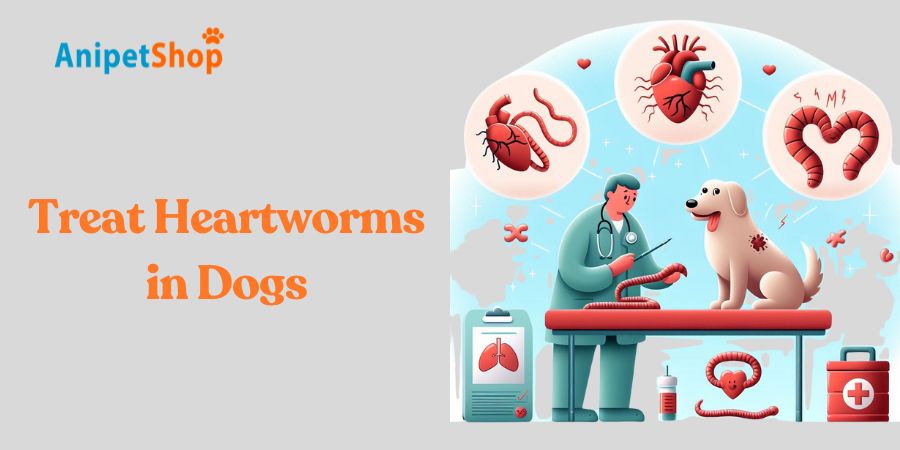
Understanding Heartworm Disease
Heartworm disease is a severe and potentially fatal disease affecting dogs. Understanding the life cycle of heartworms and recognizing the symptoms early on is crucial for effective treatment. Let’s delve into the lifecycle of heartworms and discuss the common symptoms and diagnostic procedures.
Heartworms have a complex life cycle involving several stages within the dog and the mosquito.
Here is a simplified overview:
-
- Transmission: Infected mosquitoes transmit heartworm larvae (microfilariae) to dogs through mosquito bites.
- Migration: The microfilariae enter the dog’s bloodstream and mature into infective larvae over about two weeks.
- Heart and Lung Infestation: The infective larvae migrate to the heart and nearby blood vessels, where they mature into adult worms. This process takes approximately six months.
- Reproduction: Adult heartworms can live for several years, and female worms release microfilariae into the bloodstream. These microfilariae can be picked up by mosquitoes, continuing the life cycle.
To better understand the complexity of the heartworm life cycle, refer to the diagram below:
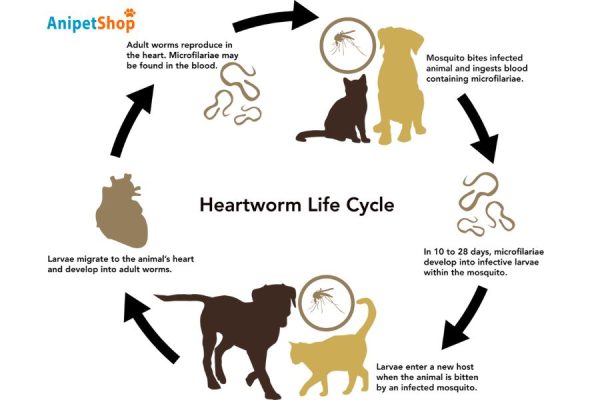
Heartworm disease progresses through different stages, and the severity of symptoms can vary. However, early detection is crucial for successful treatment.
Here are common symptoms to watch for and the diagnostic procedures used:
The initial stages of heartworm disease may not present noticeable symptoms. As the disease progresses, dogs may exhibit the following signs:
-
- Coughing
- Fatigue and exercise intolerance
- Weight loss
- Difficulty breathing
- Reduced appetite
- Swollen abdomen (in severe cases)
Veterinarians employ a combination of methods to diagnose heartworm disease, including:
-
- Physical Examination: A thorough examination can reveal abnormal lung and heart sounds or an enlarged liver.
- Blood Tests: Blood tests can detect the presence of heartworm antigens or antibodies, providing evidence of an active infection.
- Imaging Techniques: X-rays and ultrasound can help visualize the heart, lungs, and blood vessels, aiding in detecting heartworms and assessing the extent of the infestation.
Price Of Heartworm Treatment
The cost estimates for this treatment vary widely. They’ll depend on complications and whether your dog needs hospitalization. But you can spend at least $1,000, probably more in some cities. Some dog owners report spending as much as $2,000.
The Conventional Treatment Approach
When treating heartworm disease in dogs, the conventional approach involves a comprehensive treatment plan using FDA-approved medications. Let’s examine the conventional treatment process and the associated risks and considerations.

Conventional Treatment for Heartworms:
-
- Stabilization: Before initiating treatment, veterinarians may recommend a stabilization period to ensure the dog is in the best possible condition to tolerate the treatment. This may involve managing symptoms such as coughing and providing supportive care.
- Adulticide Treatment: The primary goal of adulticide treatment is to eliminate adult heartworms. This is typically done using FDA-approved medications, most commonly an injectable drug called melarsomine. The medication is administered in injections targeting adult worms in the heart and blood vessels.
- Microfilariae Treatment: Besides killing adult worms, it is essential to address the microfilariae in the bloodstream. This is typically done using a monthly preventive medication effective against the microfilariae. This prevents the development of new adult worms and reduces the risk of transmission to other dogs through mosquito bites.
- Exercise Restriction: During treatment, dogs must limit their physical activity and exercise to reduce the risk of complications associated with the dying worms. This restriction is necessary to prevent severe inflammation and potential blockage in the blood vessels.
Risks and Considerations:
While conventional treatment is effective in treating heartworm disease, there are risks and considerations associated with the process:
-
- Potential Complications: The process of killing adult heartworms can lead to complications, such as pulmonary embolism, in which dead worms block blood vessels in the lungs. These complications can be life-threatening and require careful monitoring and management by a veterinarian.
- Treatment Side Effects: Some dogs may experience side effects from the medications used in heartworm treatment, such as pain, swelling, soreness at the injection site, allergic reactions, or gastrointestinal upset. These side effects should be closely monitored and reported to the veterinarian.
- Strict Compliance: Successful treatment requires strict adherence to the treatment protocol, including administering medications as prescribed and following exercise restriction guidelines. Deviating from the recommended protocol can reduce the effectiveness of treatment and increase the risk of complications.
- Veterinary Expertise: The conventional treatment approach requires professional veterinary expertise for accurate diagnosis, treatment planning, and monitoring. Veterinarians play a critical role in assessing the dog’s overall health, tailoring the treatment plan, and managing any potential complications during the treatment process.
Natural Management Strategies for Heartworm
While conventional veterinary care is recommended for treating heartworm disease, some dog owners may be interested in exploring natural management strategies. It is important to note that these strategies should only be considered as adjuncts or alternatives under veterinary guidance. Here are several natural measures that may be considered:
1. Preventative Measures:
a. Mosquito Control: Minimizing mosquito exposure is crucial in reducing the risk of heartworm infection. Some natural methods include:
-
- Removing standing water where mosquitoes breed.
- Using mosquito nets or screens in outdoor areas.
- Avoiding outdoor activities during peak mosquito activity times.
b. Immune System Support: A robust immune system can help dogs fight off infections, including heartworm disease. Strategies to support the immune system include:
-
- Providing a balanced and nutritious diet.
- Regular exercise to promote overall health.
- Adequate rest and reduced stress levels.
- Administration of immune-supportive supplements recommended by a veterinarian.
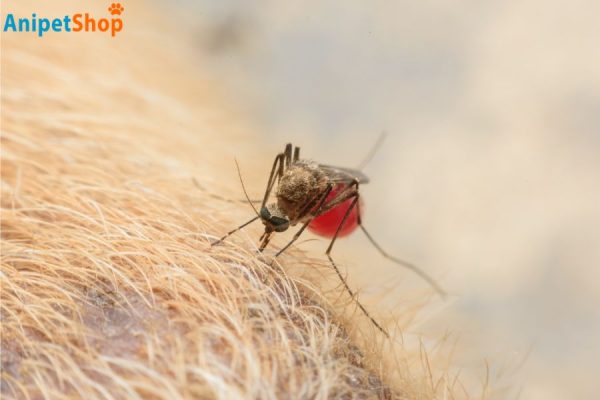
2. Diet and Nutrition:
a. Balanced Diet: Proper nutrition is essential for a dog’s overall health, including during heartworm treatment. A balanced diet can support the immune system and aid recovery. Consult a veterinarian to determine the best diet for your dog’s needs.
b. Supplements: Certain supplements may be beneficial in supporting a dog’s health during heartworm treatment. Some examples include:
-
- Omega-3 fatty acids, which have anti-inflammatory properties.
- Antioxidants, such as vitamins C and E, help combat oxidative stress.
- Herbal supplements, like milk thistle or dandelion, may support liver function.
- Always consult a veterinarian before introducing any supplements to ensure they are safe and suitable for your dog.
3. Herbal Remedies:
a. Black Walnut: Black walnut is often considered a natural heartworm deterrent. However, scientific evidence supporting its effectiveness in treating heartworms is lacking, and its use should be approached with caution due to potential side effects.
b. Garlic: Garlic is believed to have natural anti-parasitic properties. However, its effectiveness against heartworms is unproven and poses potential risks, such as causing anemia in dogs. Therefore, garlic should not be used as a substitute for conventional treatment.
c. Wormwood: Wormwood is an herb traditionally used in natural parasite control. However, its safety and effectiveness in treating heartworms have not been scientifically established.
4. Exercise and Care:
a. Manage Activity Levels: Following the veterinarian’s recommendations regarding exercise restriction during heartworm treatment is essential. Limiting strenuous activities can minimize stress on the heart and lungs. Short, low-impact walks or gentle play sessions may be appropriate but consult your veterinarian for specific guidelines.
b. Overall Care: Providing a calm and stress-free environment can aid recovery. Regular veterinary check-ups, proper medication administration, and following all treatment protocols are essential.
Integrating Natural Strategies with Conventional Care
Natural strategies can support conventional heartworm treatment, but only with veterinary guidance. Prioritize your vet’s recommendations, as they are scientifically proven. Discuss integrating natural strategies with your vet to ensure they don’t interfere with primary treatment.
Your veterinarian is crucial throughout the heartworm treatment process. They diagnose the condition, create a treatment plan, and monitor your dog’s progress. They can also advise on the safety and effectiveness of natural remedies alongside conventional treatment.
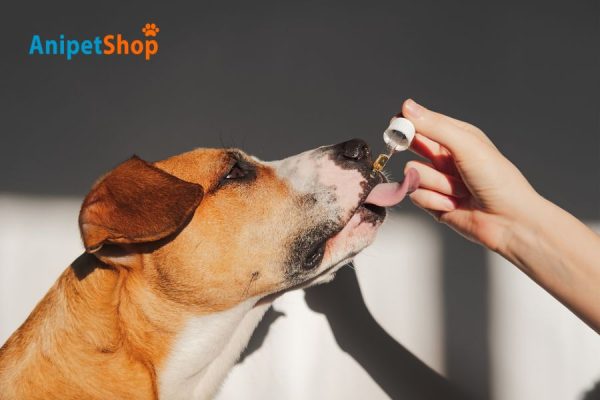
Many veterinarians support using natural strategies to complement conventional heartworm treatment under their guidance. These strategies aim to boost the dog’s overall health but should never replace scientifically proven treatment protocols.
While there may be stories of success using only natural methods, these are individual cases, not reliable evidence. Always consult your veterinarian for personalized guidance on safe and effective heartworm management.
Risks and Considerations
Treating heartworm disease without direct veterinary intervention can be risky and unnecessary. Understanding the limitations and potential risks associated with attempting to treat heartworms without professional guidance is essential. Additionally, recognizing worsening conditions is crucial for seeking immediate veterinary care.
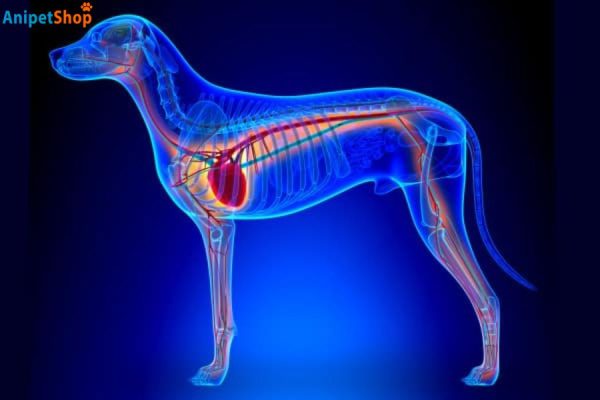
Heartworm disease necessitates thorough veterinary treatment for effective management. Targeting all disease stages without professional intervention becomes challenging, potentially leading to persistent infection and health issues. Complications like pulmonary embolism can arise, posing life-threatening risks without proper monitoring and management. Medication misuse can also cause adverse effects. Accurate diagnosis by a veterinarian is essential to avoid misdiagnosis or delays in treatment, minimizing disease progression and health risks for the dog.
Signs of Worsening Condition and Need for Veterinary Care:
Be vigilant and recognize worsening conditions in a dog with heartworm disease. If any of the following signs are observed, immediate veterinary care should be sought:
-
- Severe Coughing: Persistent, severe coughing that worsens or does not improve despite treatment can indicate worsening heartworm disease and potential complications.
- Difficulty Breathing: Labored breathing, rapid breathing, or shortness of breath can be signs of heart and lung involvement, which may require immediate veterinary intervention.
- Lethargy and Weakness: If the dog becomes increasingly passive, weak, or shows signs of exercise intolerance, it may indicate worsening heartworm disease and compromised heart function.
- Loss of Appetite and Weight Loss: A significant decrease in appetite and unexplained weight loss can indicate a deteriorating condition requiring veterinary attention.
- Swollen Abdomen or Limbs: Swelling in the abdomen or limbs can indicate fluid accumulation and organ involvement, which a veterinarian should evaluate.
Collapse or Fainting: If the dog collapses or faints, it is a severe symptom that requires immediate emergency veterinary care.
FAQs
1. Are natural strategies alone effective in treating heartworm disease?
Natural strategies alone are generally not considered effective in treating heartworm disease. The primary treatment approach is conventional veterinary care, including medication to kill heartworms. Natural strategies may be adjuncts to support the dog’s overall health and immune system during treatment.
2. How long does it take to see improvement in my dog’s condition with natural management strategies?
Natural management strategies alone are unlikely to eliminate heartworms. The improvement timeline depends on the infection’s severity, treatment protocol, and the individual dog’s response. It is essential to follow the guidance of your veterinarian regarding treatment duration and monitoring.
3. What signs my dog is responding positively to natural management strategies?
Signs of positive response may include improved appetite, increased energy levels, decreased coughing or respiratory distress, and a generally healthier appearance. However, it is crucial to remember that these signs alone do not indicate the elimination of heartworms. Regular veterinary check-ups and diagnostic tests are necessary to accurately assess the dog’s progress.
4. What are the signs that my dog’s condition is not improving or worsening despite natural management strategies?
Signs that indicate a lack of improvement or worsening condition include persistent coughing, difficulty breathing, lethargy or weakness, loss of appetite or weight, and swollen abdomen or limbs. If any of these signs are observed, it is essential to seek immediate veterinary care.
5. Can natural management strategies replace conventional heartworm treatment?
Natural management strategies should not replace conventional heartworm treatment. The primary and scientifically proven approach is conventional treatment, including medication to kill heartworms. Natural strategies can be used as supportive measures but should always be integrated under veterinary guidance and conventional treatment protocols.
Conclusion
Managing heartworm disease in dogs requires combining veterinary care with natural strategies. Consulting a vet is essential for safety. Recognizing symptoms prompts immediate care. Treating heartworms without guidance is risky. Open communication with vets is crucial. Educate yourself, stay vigilant, and collaborate with vets for the best outcome.
Lily Watson is an author specializing in veterinary care in Australia. With a profound passion for animal welfare and a solid foundation in veterinary science, Lily has dedicated herself to disseminating valuable knowledge and information for both pet owners and professionals in this field.

